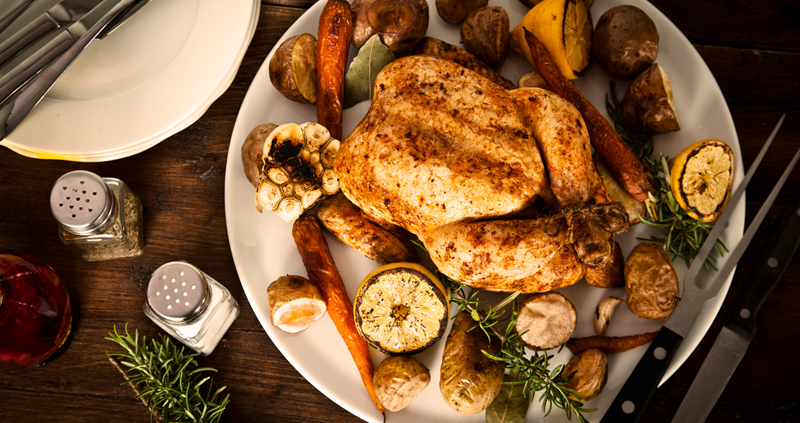About the sector
The British poultry sector covers chicken, geese, turkey and duck – covering half of the meat eaten in the country, and growing!
According to statistics from the British Poultry Council, the average Brit consumes 35kg of poultry meat each year.
British farmers pride themselves on having some of the highest welfare standards in the world, and are committed to producing safe, wholesome, and nutritious food for Britain.
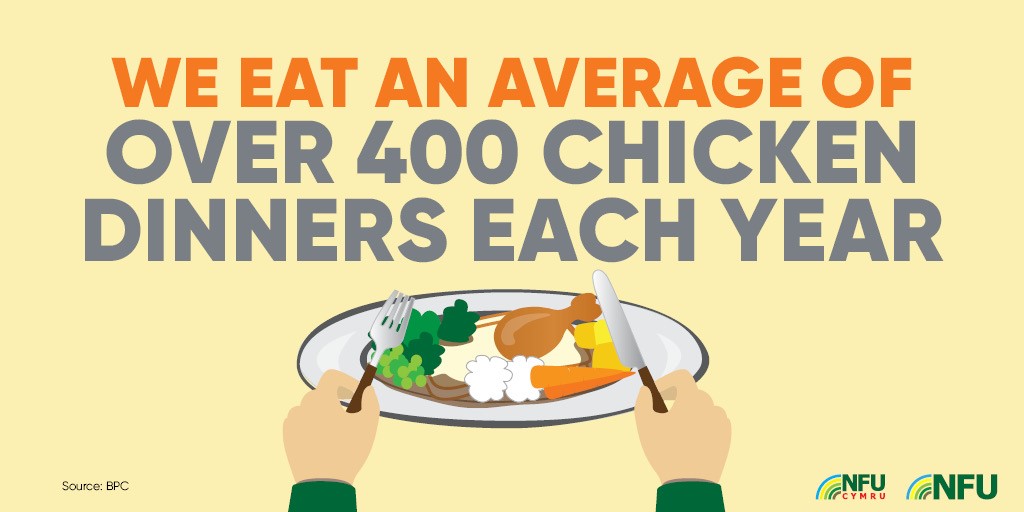
Red Tractor
The Red Tractor logo can be found on British food and drink products which have been certified to rigorous standards and produced in the UK. Over 95% of poultry meat produced in the UK is Red Tractor assured.
This means that the way they rear their birds meets strict standards of animal welfare, safety, hygiene and traceability.
Red Tractor strictly monitors the scheme and any farmers found not to be adhering to standards are removed from the assurance scheme. Red Tractor farms are independently audited every year to ensure they are complying with the scheme rules.
When you see this logo on the food you buy, you can be sure it has been responsibly sourced and safely produced by British farmers. Don't forget to look out for it when shopping!
The latest Red Tractor adverts aim to highlight that, even in price-conscious times, consumers can still buy British food that is assured to rigorous standards, just by looking for the Red Tractor logo.
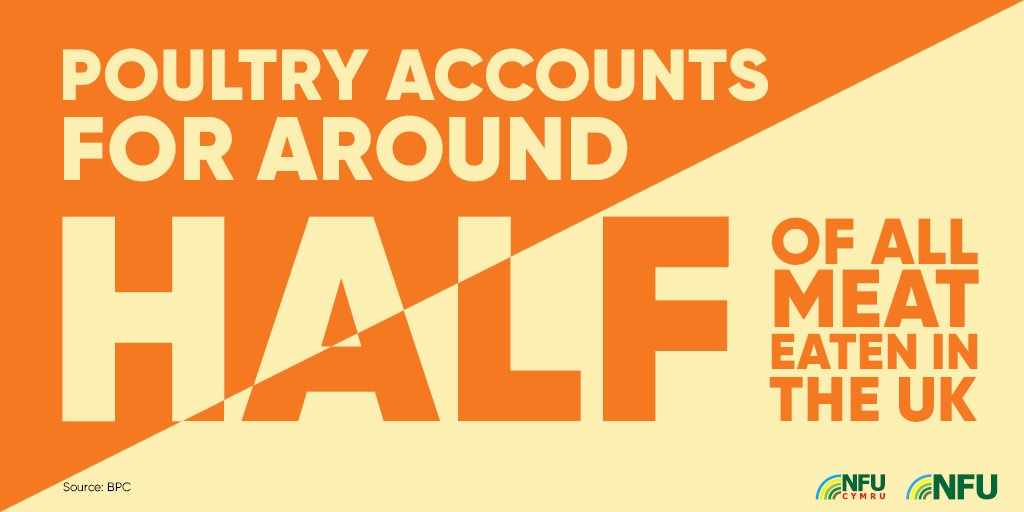
Poultry sector and the economy
British farmers rear 1 billion broilers (chickens that are reared for meat) for food every year, which contributes more than £4.6 billion to the UK economy.
The poultry meat sector supports around 100,000 jobs, ranging from farmers and farm managers to processors, haulage companies and lorry drivers. In addition to this, thousands of extra workers are employed for seasonal poultry production each Christmas.
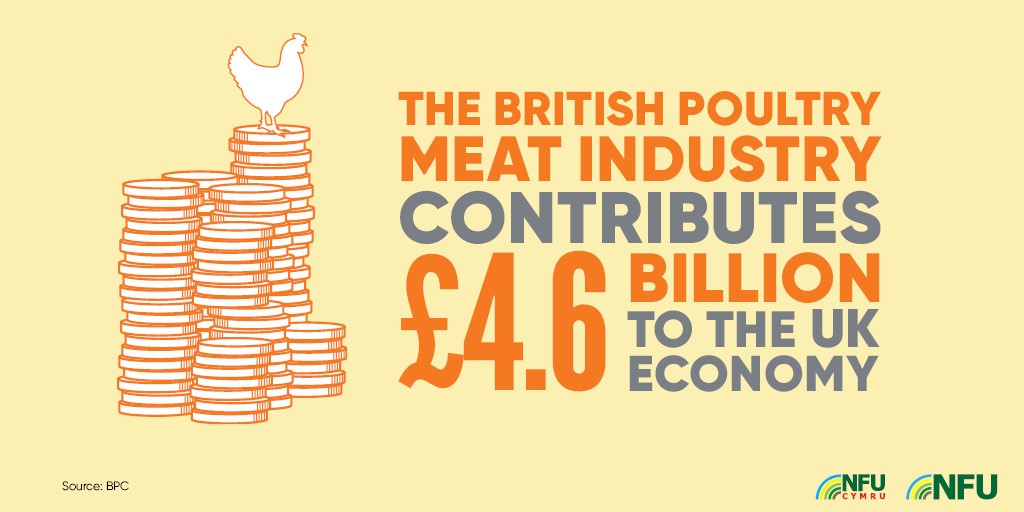
Animal health and welfare
How do British farmers look after the health and welfare of their birds?
The health and welfare of their birds is a farmers’ number one priority.
They are raised in environments where they have access to food, water, warmth and plenty of space. The majority of sheds housing poultry have windows to allow natural daylight in.
Every farmer has their own creative ways to entertain the hens and keep them occupied. This might be to hang pieces of string around with CDs attached for them to peck, give the birds toys to play with, or add bales of straw or shavings for the birds to stand on.
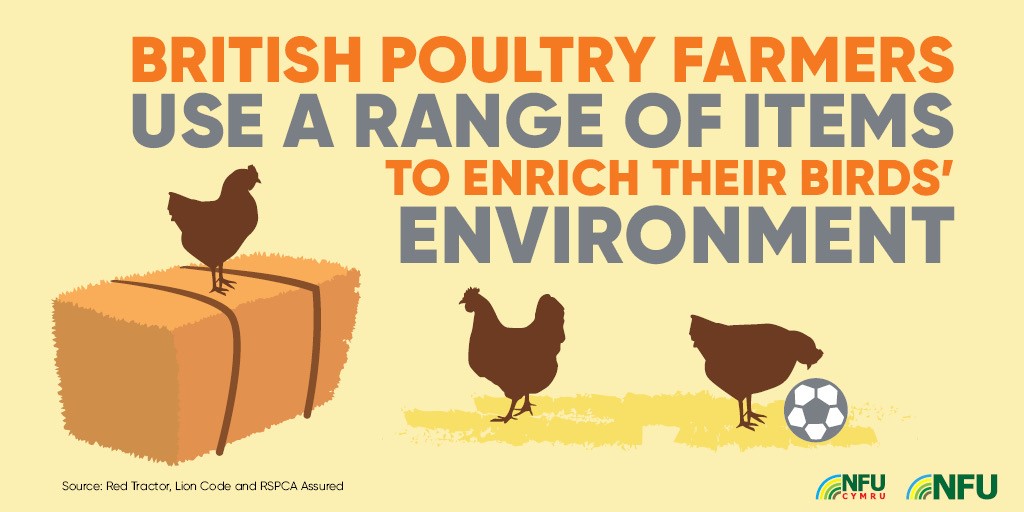
Looking after the health and welfare of broiler chickens
A broiler is a chicken that is bred and reared specifically for the production of meat.
There are four main types of production systems in the UK.
Standard indoor
Birds are reared in barns with access to feed, water and space to move around amongst the flock. The floors of these houses are covered in bedding material, such as wood shavings or chopped straw.
Over 95% of broiler chickens reared in the UK are part of the Red Tractor assurance scheme, which requires barns to have windows and environmental enrichment elements like bales and perches, so birds have access to natural light and can express natural behaviour.
Enhanced welfare
Birds are reared in barns similar to those used for standard indoor production. This production system uses slower growing breeds and requires more space per bird than standard indoor. Chicken from birds reared this way often carries an RSPCA Assured or Red Tractor Enhanced Welfare label on the packaging.
Free range
Birds have continuous daytime access to the outdoors for at least half of their lifetime, as well as, access to feed, water and plenty of space . Free range birds usually have more space per individual bird in the barn than enhanced welfare or standard indoor production systems.
Organic
Slow-growing breeds must be used, and birds are fed an organic diet and given access to an outdoor range on organic land for at least a third of their life.
Organic chickens are kept in smaller flock sizes than other production systems. Organic chicken will often carry a label from an assurance scheme such as the Soil Association or Organic Farmers & Growers.
Chlorinated chicken
Chlorinated chicken, or chlorine-washed chicken, refers to chicken that has been dipped or washed in chlorinated water to remove harmful bacteria. It’s a process which is banned in Britain but used by some US poultry producers.
The UK adopts a ‘farm-to-fork’ approach to food safety and only drinking water is permitted to wash chicken carcasses post-slaughter.
Banning the use of chlorine in British poultry meat production ensures that higher standards of hygiene and animal welfare are met throughout each stage of the process, rather than relying on a chemical to kill any harmful pathogens and bacteria post-slaughter.
British farmers are rightly proud of their world leading food standards, and a post-Brexit trade agreement with countries with less rigorous animal welfare and food safety requirements puts this at risk.
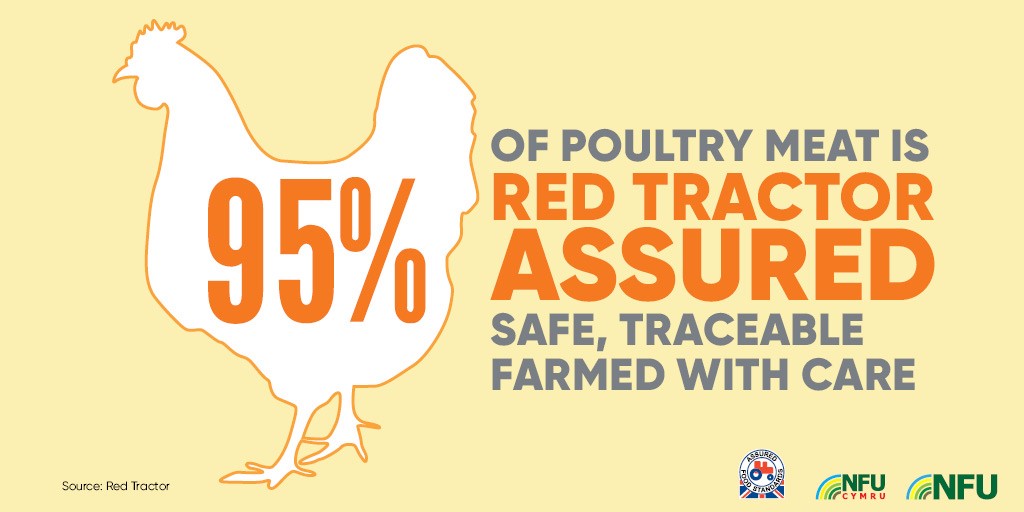
How can I support British poultry farmers?
When shopping in the supermarket, remember to check the food labels for the Red Tractor logo and British flag, and if buying from a local butcher you can always ask where the meat has come from.
At Christmas you can use the NFU Turkey Finder to locate your nearest turkey farmer and buy your bird direct from the farm where it was reared.
